Skill development has continued to transform and evolve over the years, shifting from a narrow focus on technical abilities to a much broader focus on diverse skills. This shift is essential, as these skills empower professionals to confidently and creatively navigate the complexities of modern corporate challenges.
What are Durable Skills?
In the fast-paced world of today’s corporate landscape, the role of durable skills—often dismissed as "soft skills"—has taken on newfound importance. Durable skills are essential interpersonal and cognitive skills such as communication, collaboration, problem-solving, adaptability, and emotional intelligence.
As artificial intelligence (AI) reshapes how we work, the ability to communicate effectively, collaborate seamlessly, and lead with genuine empathy has become essential for success. A recent Deloitte Insights report highlights that an overwhelming 92% of companies recognize these interpersonal skills as more critical than hard skills in driving business success. This shift is echoed by leaders like Microsoft CEO Satya Nadella, who argues that labeling empathy as “soft” diminishes its profound impact on organizational culture and performance.
In a world where access to information is ubiquitous, the differentiating factor for professionals is no longer just technical expertise but the human touch they bring to their roles. While technical skills may evolve and become obsolete, durable skills such as problem-solving, adaptability, and emotional intelligence remain constant and invaluable. These competencies not only enhance individual performance but also foster a cohesive team environment.
Moreover, as AI takes over routine tasks, the demand for human-centric skills will only increase. The ability to connect with others, understand diverse perspectives, and drive innovation through collaboration becomes paramount. Companies that prioritize the development of these durable skills within their workforce are not just preparing for the future; they are cultivating a holistic environment that values empathy and creativity alongside technical prowess. In this new era, embracing durable skills is not merely an option—it is a necessity for anyone looking to thrive in their career and contribute meaningfully to their organizations.
Effective Training Methods for Developing Durable Skills
As organizations recognize the critical need for durable skills, they must consider how best to cultivate these competencies within their workforce. Traditional training methods alone may not suffice; instead, a combination of innovative approaches is required to engage employees and foster meaningful skill development. L&D leaders aiming to implement effective durable skills training must first identify the specific skills required to achieve their business goals. Once these skills are pinpointed, they should select the training methods that best align with their objectives. Here are several effective training methods to consider:
- Blended Learning: This approach combines online digital media with traditional face-to-face instruction, catering to various learning styles and preferences. By integrating eLearning modules with in-person workshops, employees benefit from both flexibility and direct interaction with instructors. This method is particularly effective for developing communication skills, as it allows participants to practice verbal and written communication in a structured environment while receiving immediate feedback.
- On-the-Job Training (OJT): OJT allows employees to learn in real time by performing their actual job responsibilities under the guidance of experienced colleagues. This method accelerates skill acquisition and boosts confidence, as employees apply what they learn immediately in their work environment. OJT is especially beneficial for enhancing problem-solving and collaboration skills, as employees navigate challenges alongside their peers and learn to leverage team dynamics effectively.
- Simulation-Based Training: For complex or high-stakes tasks, simulation-based training provides a safe environment for employees to practice skills without real-world consequences. This method enhances decision-making and problem-solving abilities while allowing individuals to navigate realistic scenarios. By simulating real-life situations, employees develop critical thinking and adaptability—key components of durable skills that are essential in today’s fast-changing work landscape.
- Gamification: Incorporating game-like elements into training—such as points, badges, and rewards—can make learning more engaging and enjoyable. Gamification encourages active participation and retention of knowledge while fostering a competitive spirit among employees. This method is particularly effective for developing teamwork and collaboration skills, as participants often work in groups or compete against each other, enhancing their ability to communicate and cooperate under pressure.
- Social Learning: Leveraging peer interactions through collaborative platforms enables employees to learn from one another’s experiences. This approach enhances teamwork and encourages knowledge sharing, reinforcing durable skills in a practical context. Social learning is crucial for building empathy and interpersonal communication skills, as it allows employees to engage in discussions, share feedback, and understand diverse perspectives within the workplace.
By implementing these diverse training methods, organizations can create a robust framework for developing durable skills among their employees. This comprehensive approach not only enhances individual capabilities but also fosters a culture of continuous improvement and collaboration within teams. As the demand for these competencies grows, it becomes clear that custom learning solutions and targeted leadership training will be pivotal in equipping teams with the tools they need to thrive in an ever-evolving workplace. Tailoring training programs to address specific organizational needs ensures that employees are not only engaged but also able to apply their skills effectively in real-world situations. Ultimately, investing in the development of durable skills positions organizations to adapt swiftly to changes and challenges, driving long-term success and resilience in a competitive landscape.







_Blog%20Featured%20Image%20800x500.png?width=388&name=Recap%209-4-25%20Why%20You%20Should%20Train%20Sales%20Leaders%20Like%20Cats%20(Not%20Dogs)_Blog%20Featured%20Image%20800x500.png)

